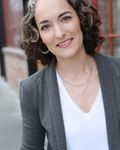2022
Keramet Reiter
- Professor
- University of California, Irvine

Abstract
In the 2010s, states like California, Colorado, Illinois, and Washington drastically reduced the numbers of state prisoners held in long-term solitary confinement. In some cases, states entirely eliminated harsh isolation conditions, reversing decades of abusive and punitive policies. “Walking the Line” examines these reforms. Part One analyzes the institutional infrastructures that facilitate reform and argues that charismatic leadership drove the most significant and sustained reforms in states like Colorado and Washington. Part Two focuses on how prison staff define who ends up in solitary confinement, categorizing people as mad or bad. Part Three explores how staff working in solitary confinement experience institutionalization. “Walking the Line” interweaves and interprets nearly 200 prisoner and staff interviews and hundreds of hours of observation completed in a variety of state solitary confinement units in the 2010s.
Abstract
PrisonPandemic is a digital archive of incarcerated voices in the COVID-19 pandemic. Since inception in 2020, the project has collaborated with community partners (VNON, Underground Scholars, Project Rebound, members of Essie Justice Group, Initiate Justice, Jail Guitar Doors, OC Friends of Detainees, Place4Grace, the Youth Offender Program) and 170 undergraduates to collect 2600 letters, 440 phone calls, and 300 artworks from people in 50-plus carceral facilities. The project is now transitioning from urgent story-collecting to sustainable story-processing and outreach, centering marginalized, under-represented voices. To advance the project’s pedagogical model of archiving and publicly engaged humanities for high school, college, and incarcerated students, the project team will institutionalize a replicable archive-based writing course, and develop pedagogical materials and partnerships with state prison facilities, state universities (including partners at UC Berkeley, Davis, Hastings, LA, Merced, Santa Barbara, Santa Cruz, and San Francisco), and Orange County high schools to increase awareness and accessibility.

